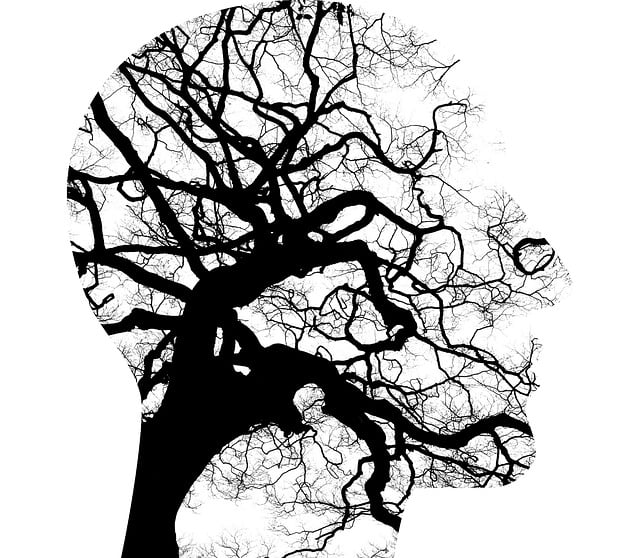Mental health policy analysis is a powerful tool to address societal challenges related to therapy for young adults sexual dysfunction. By examining existing laws, guidelines, and programs, researchers uncover social, cultural, and economic factors impacting mental health outcomes. Key areas like Mental Health Education Programs Design and Communication Strategies are crucial for identifying gaps and barriers in support systems. Understanding these issues is essential for developing evidence-based policy recommendations promoting inclusive and effective mental healthcare solutions. Global case studies show that comprehensive interventions integrating therapy (e.g., CBT), education, and community engagement can significantly improve young adults' well-being. Effective advocacy drives change by raising awareness, challenging stereotypes, and ensuring access to specialized therapy for young adults sexual dysfunction.
Mental health policy analysis and advocacy are vital components in addressing the growing concerns of sexual dysfunction among young adults. This article explores a multi-faceted approach, offering a comprehensive framework for understanding mental health policies. We delve into the impact of sexual dysfunction on young adults’ well-being and its intricate connection to mental health. Additionally, it presents effective advocacy strategies, analyzes existing policy gaps, and showcases successful interventions through case studies, emphasizing the importance of therapy for young adults suffering from sexual dysfunction.
- Understanding Mental Health Policy: A Framework for Analysis
- The Impact of Sexual Dysfunction on Young Adults and Its Connection to Mental Health
- Advocacy Strategies: Empowering Change in Mental Health Care
- Analyzing Existing Policies: Gaps and Opportunities for Improvement
- Case Studies: Successful Mental Health Policy Interventions for Sexual Dysfunction
Understanding Mental Health Policy: A Framework for Analysis

Mental health policy analysis is a critical approach to understanding and improving societal responses to mental health challenges. It involves scrutinizing existing laws, guidelines, and programs related to mental well-being, with a particular focus on their impact on vulnerable populations, such as young adults facing sexual dysfunction issues that often require therapy. This framework encourages advocates and researchers to delve into the intricate web of social, cultural, and economic factors influencing mental health outcomes.
By analyzing policy components like Mental Health Education Programs Design and effective Communication Strategies, it becomes possible to identify gaps and barriers in support systems. For instance, inadequate access to therapy for young adults with sexual dysfunction might stem from a lack of awareness, societal stigma, or insufficient resources allocated to mental health services. Understanding these dynamics is essential for shaping evidence-based policy recommendations that foster confidence-boosting initiatives, ultimately leading to more inclusive and effective mental healthcare solutions.
The Impact of Sexual Dysfunction on Young Adults and Its Connection to Mental Health

Sexual dysfunction is a significant issue that can profoundly impact the mental health and overall well-being of young adults. It often goes hand in hand with various psychological disorders, such as anxiety, depression, and low self-esteem, creating a complex interplay between physical and mental ailments. Many young people struggle silently, ashamed to seek help, which can lead to increased isolation and worsening symptoms. This issue demands attention from both healthcare professionals and policy advocates, who must recognize the urgency of addressing sexual health as an integral part of holistic well-being.
The connection between sexual dysfunction and mental health is not straightforward; it involves biological, psychological, and social factors. For instance, individuals dealing with erectile dysfunction or vaginal dryness may experience a loss of intimacy, which can trigger feelings of anxiety and sadness. Moreover, the lack of sexual education and self-awareness exercises often leaves young adults unprepared to communicate their needs, leading to relationship conflicts. Empathy-building strategies and conflict resolution techniques can play a vital role in helping them navigate these challenges. Therapy for young adults with sexual dysfunction should, therefore, incorporate both physical and mental health interventions, ensuring a comprehensive approach that fosters self-acceptance, improves communication, and strengthens relationships.
Advocacy Strategies: Empowering Change in Mental Health Care

Advocacy plays a pivotal role in shaping mental health policies and driving transformative change. For young adults facing issues like sexual dysfunction, advocacy strategies are crucial tools to ensure access to appropriate therapy and support. By raising awareness, advocates bring attention to the unique challenges this demographic faces, fostering understanding and empathy from policymakers.
Effective advocacy involves educating the public, challenging stereotypes, and pushing for evidence-based practices. It encourages the integration of specialized services tailored to young adults’ needs, addressing sexual dysfunction within the broader context of mental health care. Moreover, it promotes risk management planning for professionals, ensuring they have the tools to provide compassionate care while mitigating potential risks. Inner strength development and empathy-building strategies are also key components, empowering both patients and healthcare providers to navigate complex issues with resilience and sensitivity.
Analyzing Existing Policies: Gaps and Opportunities for Improvement

When examining mental health policies, a thorough analysis reveals both existing strengths and critical gaps that demand attention. Many countries have made strides in recognizing and addressing various mental health concerns among different demographics, including young adults. However, there’s a notable lack of comprehensive strategies tailored to the unique needs of this age group, particularly when it comes to issues like sexual dysfunction and burnout prevention. While policies exist for therapy for young adults with sexual dysfunctions, their implementation and accessibility vary widely.
The analysis also uncovers opportunities for improvement in communication strategies between mental health professionals and young adults. Effective risk assessment practices are crucial but often underdeveloped, leaving a gap in early intervention for at-risk individuals. Enhancing these areas could significantly impact the overall mental well-being of this demographic, fostering healthier development and mitigating potential long-term issues such as chronic stress or more severe psychological disorders.
Case Studies: Successful Mental Health Policy Interventions for Sexual Dysfunction

Successful mental health policy interventions for sexual dysfunction among young adults have shown promising results in various case studies globally. These initiatives often focus on comprehensive approaches that integrate therapy, education, and support systems. For instance, countries like Canada have implemented specialized programs targeting young adults experiencing sexual dysfunctions, incorporating cognitive-behavioral therapy (CBT) and psychoeducation to improve mental wellness and overall quality of life.
One notable strategy involves community-based organizations offering stress management workshops tailored for this demographic. These workshops not only enhance mental health awareness but also provide practical tools for coping with stressors that may contribute to sexual dysfunctions. By combining clinical therapy with community engagement, these interventions foster a supportive environment, encouraging open discussions and normalizing conversations around mental wellness, ultimately leading to more effective treatment outcomes.
Mental health policy analysis and advocacy are vital tools in addressing the complex issue of sexual dysfunction among young adults, which is closely linked to broader mental well-being. By understanding the interplay between mental health and sexual health policies, we can identify gaps and opportunities for improvement. The case studies presented highlight successful interventions that showcase the potential for transforming care. Advocacy strategies empower individuals and communities, ensuring access to comprehensive therapy for young adults experiencing sexual dysfunction, ultimately contributing to a more holistic approach to mental health support.













